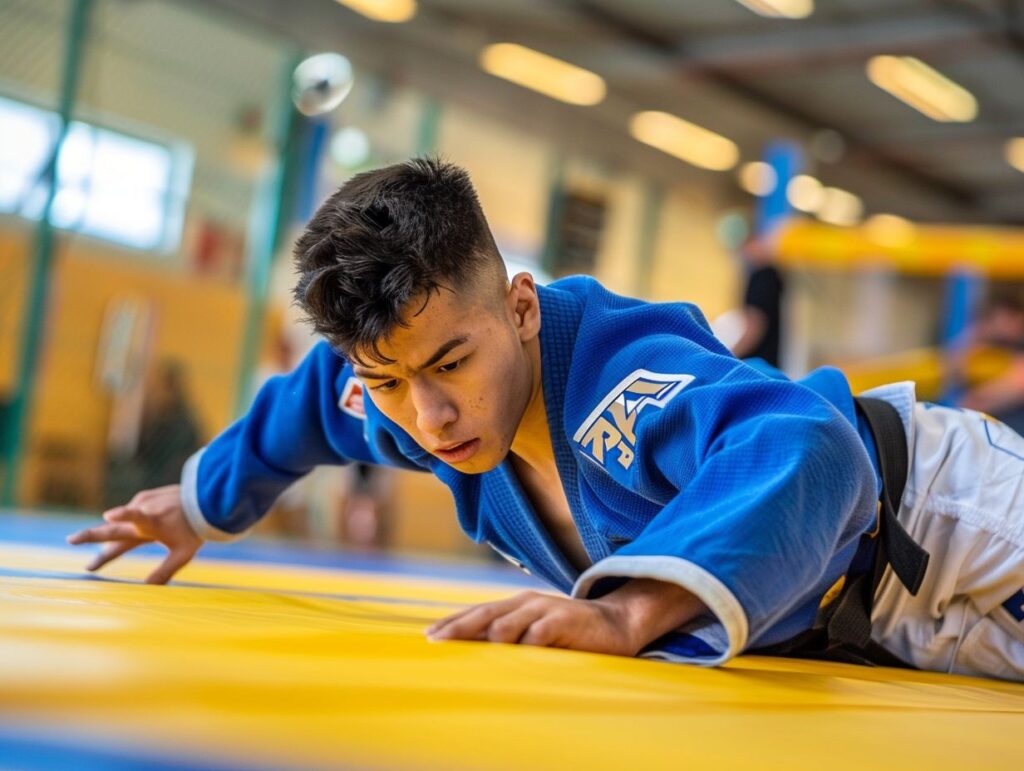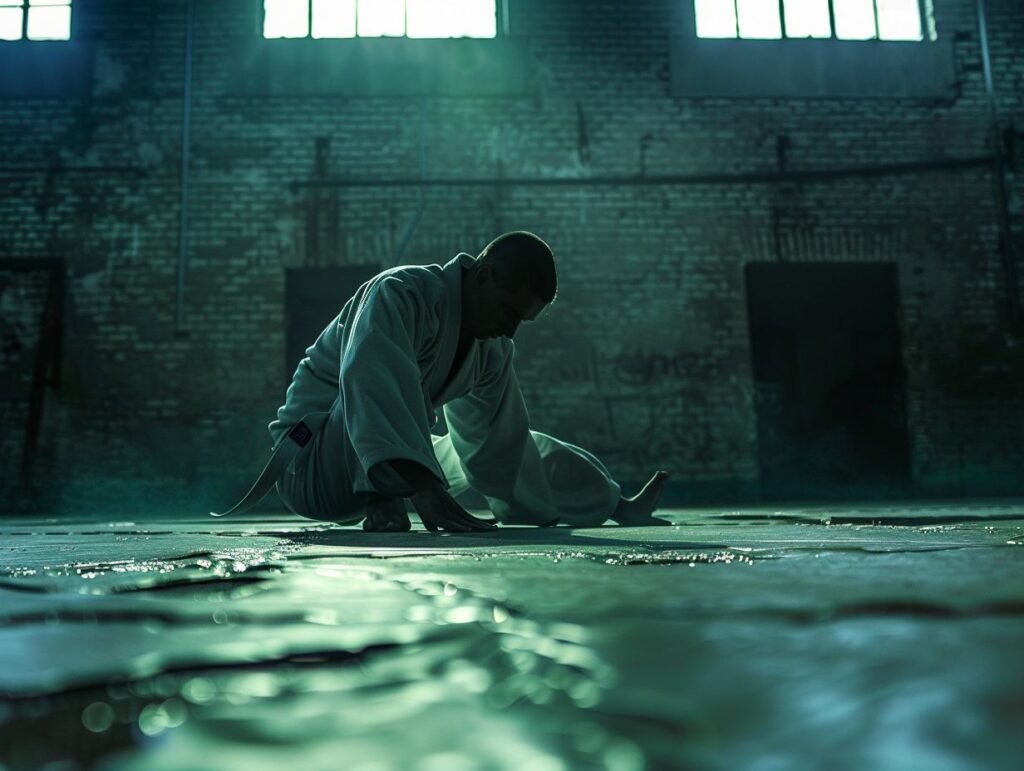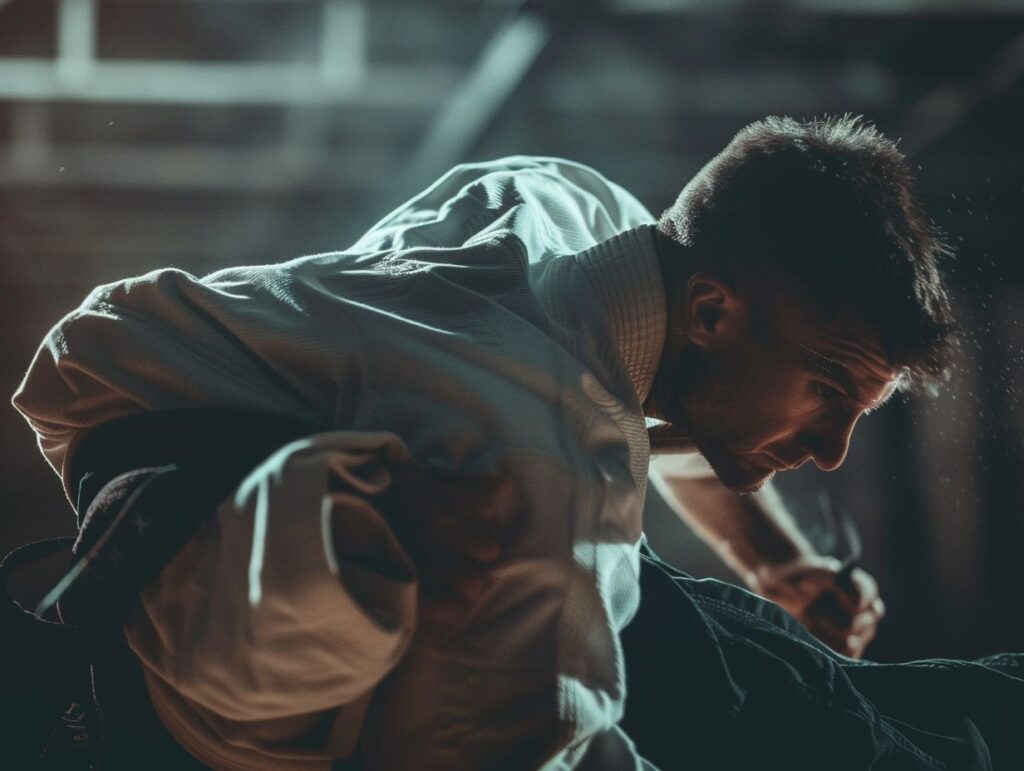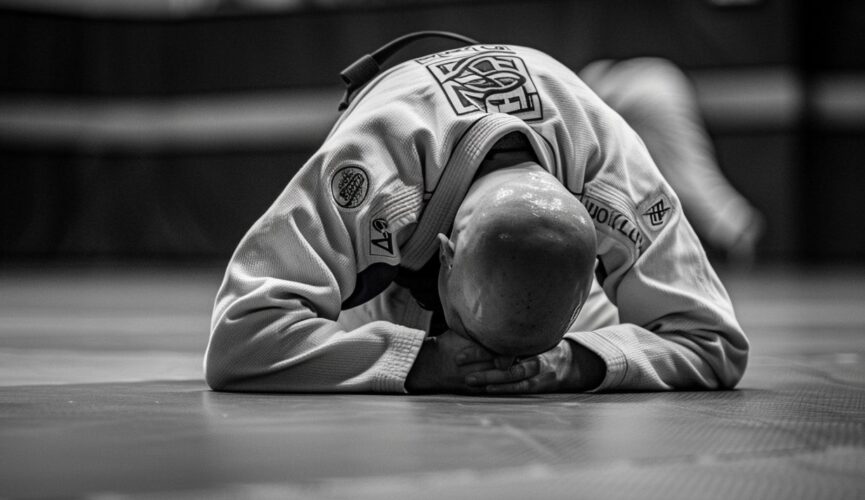Are you curious about the journey to earning a black belt in Brazilian Jiu-Jitsu (BJJ)? Let’s explore the history and origins of the black belt, uncover its meaning and significance, and discuss the factors that can impact how long it takes to reach this prestigious rank.
We’ll even dive into the average time it takes to earn a black belt in BJJ based on statistics and data. And of course, we’ll share some tips to help you speed up your progress towards achieving this ultimate goal. Ready to get started?
History and Origins
You should know that Brazilian Jiu-Jitsu (BJJ) traces its origins back to Judo, which made its way to Brazil in the early 20th century. Over time, it morphed into its own unique martial art thanks to the Gracie family’s work in tweaking Judo techniques to work on the ground.
Back in the 1920s, Carlos Gracie and his younger brother Helio Gracie took this evolution further by focusing on leverage and technique rather than brute strength. This fresh perspective paved the way for Brazilian Jiu-Jitsu to become a martial art centered on submissions and controlling positions.
A significant moment in BJJ’s history was the introduction of the Gracie Challenge. This was when members of the Gracie family threw down the gauntlet and invited fighters from other disciplines to face off against them in real combat scenarios to see how effective BJJ really was.
What is a Black Belt in BJJ?
Achieving a Black Belt in Brazilian Jiu-Jitsu (BJJ) means mastering the art and having a deep understanding of the techniques. It’s the highest rank in the belt system, showing your dedication, skill, and experience in BJJ.
To earn a Black Belt in BJJ, you’ll need years of practice, perseverance, and commitment to the discipline. It’s not just about being technically proficient but also reaching a profound level of mental and emotional growth. Black Belts are highly respected in the BJJ community for their knowledge and ability to mentor others.
The journey to Black Belt is often called transformative because you’ll learn resilience, patience, and humility along the way. It’s the result of hard work and reflects the values of respect, discipline, and always striving for improvement.
Meaning and Significance
In Brazilian Jiu-Jitsu, the belt system holds a lot of meaning for you. Each rank isn’t just about skills—it’s about how dedicated, committed, and persistent you are. Moving up the ranks isn’t just about getting better at techniques, it’s also about growing as a person and embodying the principles of BJJ.
As you climb up the ranks in BJJ, you really start living out values like discipline, humility, and respect. Every belt color tells a story of a martial artist’s journey, starting as a wide-eyed white belt eager to learn and then progressing through different colors that show improvement. The belt system is like a map that guides you through tough times, setbacks, and victories, helping you feel accomplished and strong. It’s not just about the belt’s color—it’s about the kind of person you become and the mindset you develop along the way.
Factors that Affect Time to Earn a Black Belt
In terms of earning a Black Belt in Brazilian Jiu-Jitsu, the time it takes can depend on a few things. Factors like how often you train, how fast you improve, the quality of instruction you receive, and how committed you are all play a big role in your journey to that coveted Black Belt.
Sticking to a regular training schedule is super important because practicing consistently helps you develop your skills and build muscle memory. Everyone progresses at their own pace, and things like natural talent and previous experience in martial arts can influence how quickly you advance.
Having good instructors to guide and mentor you is crucial. Experienced coaches can give you valuable feedback and tips to help you grow. And, of course, how dedicated and committed you are makes a big difference. Your level of passion and perseverance directly impacts how far you’ll go in Brazilian Jiu-Jitsu. It’s all about putting in the work and showing that you’re in it to win it.
Training Frequency and Consistency

In Brazilian Jiu-Jitsu, you’ve got to put in that regular grind to see progress. Spending those hours on the mat and showing up to classes consistently is key for honing your skills and moving forward. The more you commit to those training routines, the better your muscle memory gets, and the stronger your techniques become.
When you keep practicing those moves and rolling with your training buddies, you’re reinforcing your motions and reactions. This all leads to quicker reflexes and smarter decision-making when you’re in the heat of live rolls. It’s all about that growth that comes from being a regular at class, soaking up knowledge from your instructors, and drilling with your peers. The discipline you build through consistent training not only sharpens your physical game but also toughens up your mind, helping you face challenges both on and off the mat.
Individual Skill and Progress
Your individual skill development and progress in Brazilian Jiu-Jitsu are influenced by various factors such as mastering techniques, engaging in sparring sessions, and consistent rolling on the mat. Each training session offers you an opportunity to refine your abilities and advance in BJJ.
When you master techniques, you gain a deeper understanding of the fundamental movements, submissions, and transitions crucial in BJJ. Sparring sessions allow you to test these techniques in dynamic, live scenarios, enhancing your timing and adaptability. Rolling practices, where you engage in full-resistance grappling, further solidify your skills and reactions under pressure.
These iterative processes of learning and application are essential in honing your craft in Brazilian Jiu-Jitsu, guiding you toward continuous growth and proficiency on the mats.
Instructor’s Teaching Style
Your journey to a Black Belt in BJJ is shaped by your instructor’s teaching style, the curriculum at your academy, and the techniques highlighted during promotions. A supportive and knowledgeable instructor can make a big difference in your learning and progression in Brazilian Jiu-Jitsu.
A skilled instructor does more than just teach you moves; they also help you build discipline, perseverance, and a deep appreciation for the art. The curriculum guideposts your journey, giving you a clear path to follow and ensuring you master the basics and advanced techniques over time.
The promotion criteria at your academy act as checkpoints, pushing you to set goals and strive for higher ranks. Building a positive relationship with your instructor fosters trust, communication, and ongoing improvement. This creates an environment that nurtures personal growth and skill development in BJJ.
The Average Time to Earn a Black Belt in BJJ
The average time it takes to earn a Black Belt in Brazilian Jiu-Jitsu can differ depending on your own experience, dedication, and how often you train. While there are general estimates out there, your personal commitment and skill growth will really determine how long it takes you to reach that Black Belt.
People often say it can take anywhere from 8 to 12 years of consistent training to earn a Black Belt in BJJ. But remember, this timeline isn’t set in stone and can vary a lot from person to person. How frequently you train, the quality of teaching you receive, your natural talent, and how dedicated you are all play a big part in speeding up or lengthening your journey toward that prestigious Black Belt level.
Tips for Accelerating Progress to a Black Belt

If you want to fast-track your journey to a Black Belt in Brazilian Jiu-Jitsu, you need to set some goals, stay consistent with your training, and work on developing your skills strategically. Set clear objectives, stick to your training routine, and approach learning new techniques strategically to reach that coveted Black Belt sooner.
You’ve got to have a well-structured training plan to sharpen your BJJ skills. Allocate specific days for different aspects like takedowns, guard passing, submissions, and positional control. This focused approach to training will help you become a master at each element. Don’t hesitate to seek advice from experienced practitioners or instructors to refine your techniques and get valuable feedback for improvement.
Just remember, making progress in BJJ is a gradual process, so keep your eyes on the prize and challenge yourself during every training session to push beyond your comfort zone.
Effective Training Strategies
In terms of mastering Brazilian Jiu-Jitsu, you’ve got to start by assessing your own skill level. Take a good look at what you’re good at and where you need work. Then, it’s all about putting in the hard work and staying consistent in your practice. By understanding what you need to improve on and dedicating yourself to getting better, you’ll see real progress in your BJJ game.
To really level up your training, set specific goals for each session. Focus on those areas where you know you need to improve and tailor your drills to target those weaknesses head-on. And don’t forget about sparring! Regularly mix it up with partners of different skill levels to challenge yourself and keep growing. Remember, consistency is key in skill development, so make sure you’re training regularly and pushing yourself out of your comfort zone. That’s how you’ll really see those big leaps forward in your BJJ journey.
Mindset and Attitude
In terms of success in Brazilian Jiu-Jitsu, you’ve got to have the right mindset and attitude. It’s all about staying dedicated, pushing through challenges, and focusing on those self-defense moves. If you want to earn that Black Belt in BJJ, you need to cultivate a positive mindset and be ready to tackle whatever comes your way.
In BJJ, it’s not just about the physical stuff – your mental game is key. Keeping a positive attitude not only makes your training more enjoyable but also helps you bounce back from setbacks. Whether you’re new to the sport or a pro, showing perseverance when things get tough can take your performance to the next level and deepen your understanding of the art. And hey, mastering those self-defense techniques isn’t just about technique – it also gives you the confidence to handle yourself in real-life situations.
Frequently Asked Questions
How long does it take to get a black belt in BJJ?

The average time it takes to earn a black belt in BJJ is about 10 years, but this can vary depending on individual dedication, training frequency, and natural talent.
What factors contribute to the length of time to earn a black belt in BJJ?
Several factors can affect the time it takes to get a black belt in BJJ, including training consistency, competition experience, rank promotions, and instructor assessment.
Can I earn a black belt in BJJ faster if I train more frequently?
While training consistently is important, it is not the only factor in earning a black belt in BJJ. Quality of training, understanding of techniques, and mastery of fundamentals are also crucial in progressing through the ranks.
Is it possible to earn a black belt in BJJ in less than 10 years?
Yes, some individuals may be able to earn a black belt in BJJ in less than 10 years with exceptional dedication, training frequency, and natural talent. However, this is not the norm and should not be expected.
Do I need to compete in tournaments to earn a black belt in BJJ?
No, competing in tournaments is not a requirement to earn a black belt in BJJ. However, competition experience can help in understanding techniques, improving skills, and gaining recognition from instructors.
What if I take a break from training? Will it affect my progress towards a black belt in BJJ?
Taking a break from training can slow down progress towards a black belt in BJJ, but it ultimately depends on the length of the break and the individual’s level of dedication upon returning. Consistency is key in progressing through the ranks.

